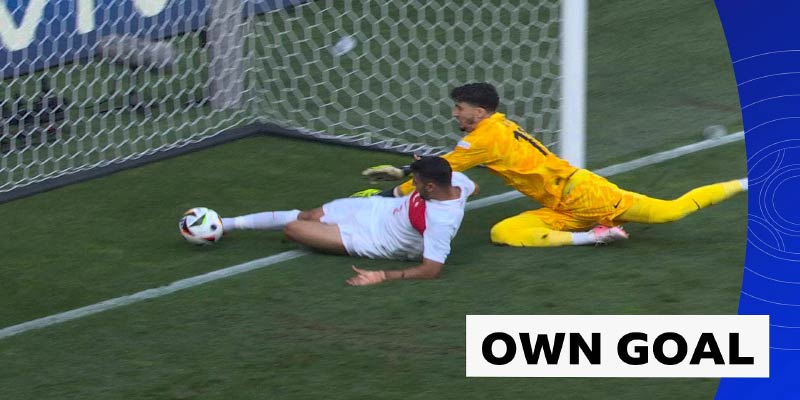An own goal isn’t just a mishap on the pitch—it’s a moment of high drama etched into football history. When a player accidentally sends the ball into their own net, it’s more than just a lost point; it highlights the immense pressure, split-second decisions, and unpredictability of the sport. Moments like these remind us of the human side of football, where even the best can falter. Whether it’s heartbreak or history, own goals keep fans and platforms like new88 talking long after the final whistle.
Memorable Own Goal Moments
Own goals have provided some of the most unforgettable moments in football history. Let’s explore how these incidents can transform matches and impact players’ psyches.
Matches transformed by own goals
The drama of football unfolds not just through brilliant plays but also through shocking blunders. Iconic examples abound where an own goal dramatically changed the outcome of a match.
For instance, consider World Cup encounters renowned for their tension and stakes. One notable moment was during the Brazil vs. Italy match in the 1994 World Cup final. An own goal by an Italian defender shifted the balance of the game, leading to Brazil’s eventual victory. Such instances showcase how a single moment can pivot the entire course of a match, leaving spectators in disbelief.
Impact on the final results
The ramifications of an own goal extend beyond just the score. They can influence team morale, fan attitudes, and even player careers. Teams may find their spirit broken after conceding an own goal, leading to further mistakes and a cascade effect that could culminate in defeat.
Conversely, an unexpected own goal can energize a trailing team, prompting a resurgence towards victory. The psychological impact of an own goal swings both ways, affecting how teams approach the rest of the game and how they reflect on their performance after the final whistle.
Psychological effects on players and teams
The aftermath of scoring an own goal is rife with emotional turmoil. Players often grapple with guilt, shame, and fear of judgment from teammates and supporters.
Coping mechanisms vary among individuals. Some players might withdraw into themselves, struggling to regain composure, while others lean on their teammates for support. The team dynamic becomes crucial in helping the affected player process the event and move forward, allowing them to heal and grow stronger.
Moreover, the media scrutiny following high-profile own goals can exacerbate feelings of inadequacy. Therefore, fostering a supportive environment within the team is key to overcoming the psychological repercussions of such incidents.
How to Minimize Own Goal Risks
Reducing the risk of own goals requires strategic planning and consistent training.
Effective defensive strategies
Organizing a solid defensive formation is critical in minimizing the chances of an own goal. Coaches often emphasize the importance of maintaining discipline in positioning and anticipating threats.
Coordinated movements between defenders and the goalkeeper can help establish a protective layer against potential own goals. By creating a well-structured defensive line, players can alleviate unnecessary pressure and focus on seamless execution.
The goalkeeper’s role in preventing critical situations
The goalkeeper’s involvement is vital in averting potential calamities. A proactive goalie communicates effectively with defenders, calling out instructions to guide them in key moments.
By directing traffic and anticipating plays, a goalkeeper can help reduce the likelihood of an own goal. Their ability to read the game shapes the defensive strategy, allowing defenders to execute their roles without second-guessing their actions. Ultimately, a well-coordinated defense, led by a confident goalkeeper, becomes a fortress against the specter of own goals.
Training players’ mentality and skills
Training does not solely involve technical skills but also emphasizes mental resilience. Players must cultivate focus and composure during matches, especially in high-pressure situations.
Simulation drills that replicate game scenarios can also help players learn how to react instinctively while mitigating the risk of scoring an own goal. Continuous reinforcement of lessons learned from past mistakes will prepare players to face future challenges with greater confidence.
Conclusion
The stories behind own goals in football serve as poignant reminders of the imperfections inherent in humanity. These critical mistakes highlight the fragility of success and the fine line between triumph and disaster.
